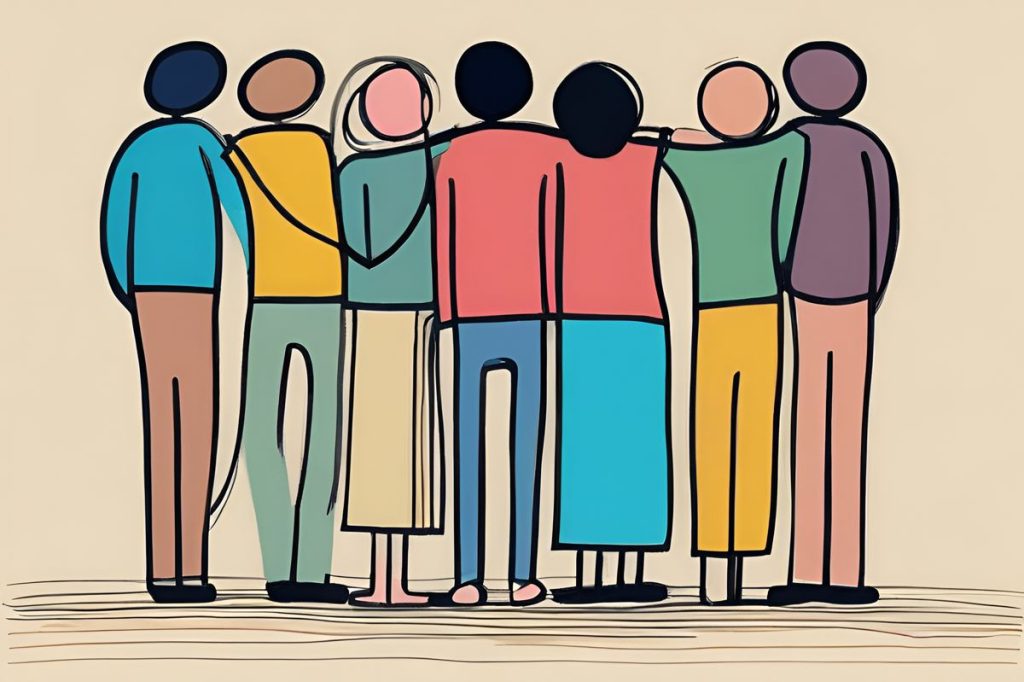Cyprus recently granted citizenship to Turkish Cypriots in mixed marriages, including children born from such unions, aligning with President Nikos Christodoulides’ integration measures and societal equality efforts. This policy change marks a significant step towards inclusivity, promoting diversity and unity within the country.
What recent policy change in Cyprus has been made regarding citizenship for mixed marriage families?
Cyprus has recently taken significant steps towards inclusivity by granting citizenship to Turkish Cypriots in mixed marriages. The policy change includes provisions for children born to such unions, facilitating their right to citizenship. This aligns with President Nikos Christodoulides’ integration measures and reflects the ongoing efforts for societal equality and the protection of EU citizen rights.
A stride forward was taken recently when a government decision granted citizenship to 14 Turkish Cypriots married to other nationals. This laudable act was praised by a non-governmental organization, dedicated to resolving mixed marriage citizenship issues. The move signifies more than just administrative action; it embodies an embrace of diversity and represents a beacon of hope for many families living under complex circumstances.
The Mixed Marriage Problem Solution Movement, an NGO at the forefront of advocating for citizenship rights, received the update with open arms. The daily announcement revealed that the migration department had processed and approved the citizenship of those in mixed marriages. “It’s a very important step in the right direction,” the group stated, acknowledging the distance yet to be traversed.
Policy Changes: A Step Towards Inclusivity
The decision to award citizenship aligns with President Nikos Christodoulides’ recent declaration of 14 measures aimed at integrating the Turkish Cypriot community within the Republic of Cyprus. These measures include specific provisions to streamline the citizenship application process for those in mixed marriages, reflecting a commitment to societal integration and equality.
A recent shift in criteria has made provisions more inclusive, allowing children born from such unions, even if their parents married abroad and settled in the island’s north, to be granted citizenship. This new criterion has ushered in much-needed change, particularly as political complexities should not impede the rights of these children. The NGO affirmed its commitment to continue its advocacy until this issue becomes a relic of the past.
Legal Rights and the Road Ahead
In the Republic of Cyprus, the law states that any child with at least one Cypriot parent is entitled to citizenship. Despite this, complications have arisen due to additional provisions allowing discretionary decisions by the cabinet in cases where one parent entered the island from the unrecognized ports in the north, or if either parent resides there. This legal quagmire left an estimated 10,000 children in limbo, devoid of the rights afforded to them as Cypriot and EU citizens.
The current administration’s efforts to amend these provisions have been met with appreciation from affected families and rights groups. The grant of citizenship to the 14 Turkish Cypriots is a testament to the government’s commitment to rectify past oversights. As the island continues to navigate its complex political landscape, such inclusive actions pave the way for a future where every citizen’s rights are upheld, regardless of their parentage or place of birth.
What recent policy change in Cyprus has been made regarding citizenship for mixed marriage families?
Cyprus has recently taken significant steps towards inclusivity by granting citizenship to Turkish Cypriots in mixed marriages. The policy change includes provisions for children born to such unions, facilitating their right to citizenship. This aligns with President Nikos Christodoulides’ integration measures and reflects the ongoing efforts for societal equality and the protection of EU citizen rights.
Who has been affected by the recent policy changes in Cyprus regarding citizenship for mixed marriage families?
The recent policy changes in Cyprus have primarily impacted Turkish Cypriots in mixed marriages, including their children born from such unions. These changes aim to promote diversity, unity, and inclusivity within the country. The NGO, Mixed Marriage Problem Solution Movement, has also been actively involved in advocating for citizenship rights for affected individuals and families.
What legal rights have been highlighted in relation to citizenship for mixed marriage families in Cyprus?
In the Republic of Cyprus, the law dictates that any child with at least one Cypriot parent is entitled to citizenship. However, complications arose due to provisions allowing discretionary decisions by the cabinet in cases where parents have connections to the unrecognized ports in the north. This discrepancy left many children without the rights afforded to them as Cypriot and EU citizens. Recent policy changes aim to rectify these legal hurdles and ensure equal rights for all citizens, regardless of their parentage or place of birth.
How is the recent policy change regarding citizenship for mixed marriage families viewed by NGOs and advocacy groups in Cyprus?
The recent grant of citizenship to 14 Turkish Cypriots in mixed marriages has been welcomed by NGOs like the Mixed Marriage Problem Solution Movement. These organizations have been at the forefront of advocating for citizenship rights for individuals and families affected by mixed marriage issues. While acknowledging the progress made, they remain committed to advocating for further changes to ensure all affected individuals receive equal treatment under the law.

